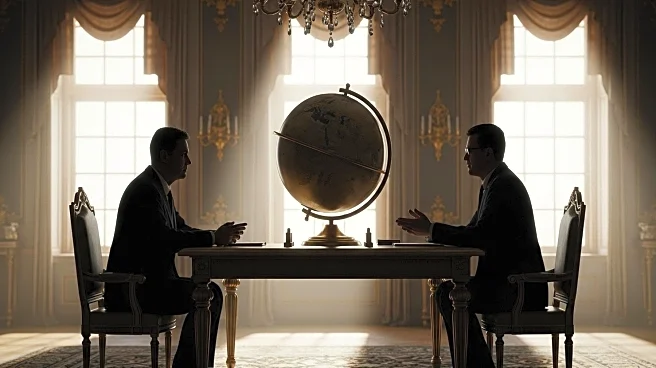What's Happening?
President Donald Trump has outlined new conditions for imposing sanctions on Russia, linking them to NATO's cessation of Russian oil purchases and the imposition of tariffs on China. Despite previous threats to sanction Russia for its actions in Ukraine, Trump has not followed through, citing the need for collective action from NATO allies. His recent statements come after Russia's largest air assault in the ongoing conflict, which has heightened tensions. Trump has criticized NATO's commitment to the conflict, urging them to adopt his proposed economic measures to pressure Russia into negotiations.
Why It's Important?
Trump's conditions for sanctions highlight the complexities of international diplomacy and the challenges of achieving consensus among NATO members. The proposed economic measures could strain relations within the alliance, as countries weigh their economic interests against geopolitical strategies. The call for tariffs on China adds another layer of complexity, potentially affecting global trade relations. The situation underscores the strategic use of economic policies in international conflicts and the potential for such measures to influence diplomatic outcomes. The response from NATO and other global stakeholders will be crucial in determining the next steps in the conflict.
What's Next?
The international community will be watching closely to see if NATO members align with Trump's strategy, which could lead to significant shifts in energy and trade policies. The potential for increased economic pressure on Russia and China may prompt diplomatic negotiations or further escalate tensions. The outcome of these developments will have implications for global markets and international relations, as countries navigate the balance between economic interests and geopolitical strategies.











